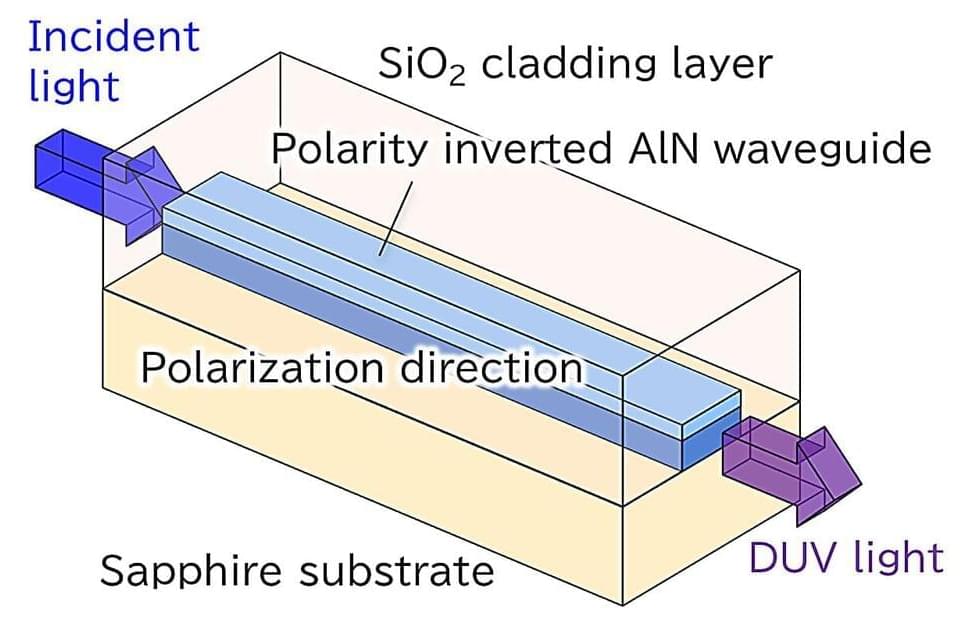While it has long been known that ultraviolet (UV) light can help kill disease-causing pathogens, the COVID-19 pandemic has put a spotlight on how these technologies can rid environments of germs. However, the excimer lamps and LEDs that can directly emit light in the required deep-UV wavelengths generally have low efficiency or suffer from short lifetimes. Moreover, UV light of the wrong wavelength can actually be harmful to human cells.
Now, a team led by researchers from Osaka University has shown how an optical device made of aluminum nitride can be used to generate deep-UV light in a method wholly different from previous approaches. The team made use of a process called “second harmonic generation,” which relies on the fact that the frequency of a photon, or particle of light, is proportional to its energy. The study is published in the journal Applied Physics Express.
Most transparent materials are considered “linear” with respect to their response to light, i.e., photons cannot interact with each other. However, inside certain “nonlinear” materials, two photons can be combined into a single photon with twice the energy, and thus, twice the frequency.
